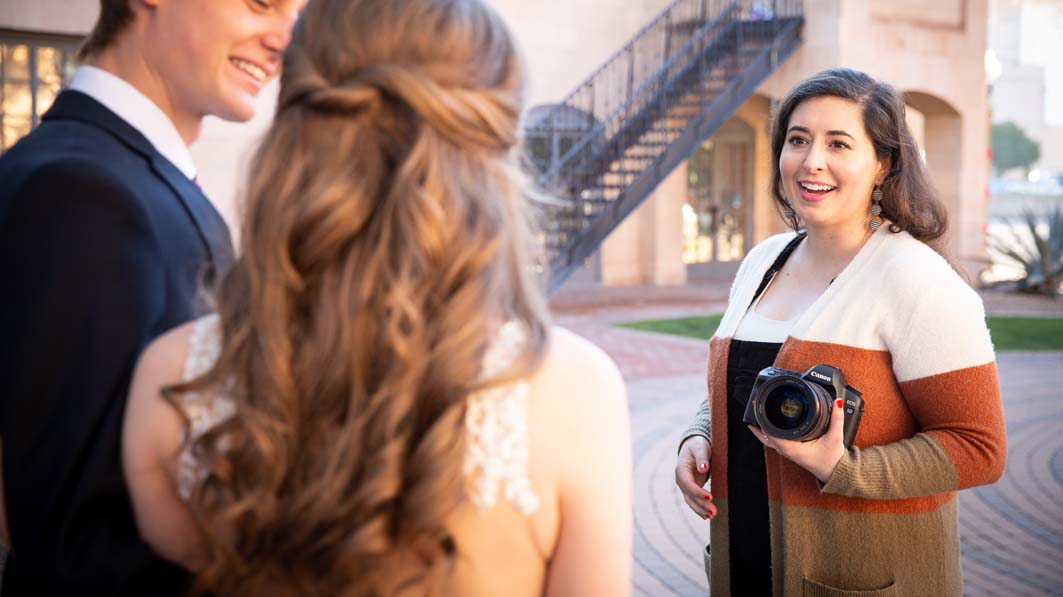Chelsey Nelson is a young entrepreneur who owns her own wedding photography business in Louisville, Kentucky. She opened the business in 2016 and works with clients from engagement to the wedding reception. She also is a storyteller, using photos and a blog to tell the stories of the couples she works with. As a Christian, Nelson desires to limit her work to opposite-sex couples whose relationships celebrate God’s plan for marriage.
Unfortunately, Louisville has a public accommodations ordinance that requires businesses not to “discriminate” on the basis of, among other things, sexual orientation. That means she could be put out of business with the threat of fines and court orders if she refuses to photograph and blog about same-sex weddings. The law also forbids her to use her business website to explain the faith principles that drive her creative desire to limit her business to opposite-sex couples.
With the help of Alliance Defending Freedom, Ms. Nelson has filed a federal lawsuit asking the court to allow her to operate her business without fear of reprisal from the local government.
Nelson’s case is in many respects similar to the cases we’re already familiar with: Masterpiece Cakeshop, Arlene’s Flowers, Sweetcakes by Melissa, Brush & Nib Studio and Telescope Media Group. The latter two recently resulted in court decisions recognizing the business owners’ First Amendment rights to use their creative skills free of government coercion concerning the message being promoted. Arlene’s Flowers is currently at the U.S. Supreme Court, and Sweetcakes by Melissa is at the Oregon Court of Appeals.
Don’t blame the entire state of Kentucky for Ms. Nelson’s potential problems. The state does not have a public accommodations law that requires Christians to face conscience-killing decisions over sexual orientation and gender identity. Plus, the state has its own Religious Freedom Restoration Act which may come in to play to protect Nelson’s religious freedom. And recently, if you’ll recall, a Lexington printer, Blaine Adamson, also a Christian businessman, won his case at the Kentucky Supreme Court after a county government tried to do to him what Ms. Nelson fears Louisville will attempt to do to her: force her to use her creative skills to convey a message she is opposed to on religious grounds.
Although the Kentucky government still supports religious freedom, local municipalities may not. Dominated by more liberal citizens, city and county government bodies in Lexington and Louisville have passed so-called “SOGI”—sexual orientation and gender identity— ordinances that put Christian business owners in the crosshairs of LGBT activists.
The 2017 Masterpiece Cakeshop decision from the U.S. Supreme Court never quite reached the First Amendment question that was at issue in that case and this one: Do creative people of faith have the freedom to choose which messages they will convey and which they will not? Can government compel speech that is contrary to what these artists believe?
Ms. Nelson, like Jack Phillips (Masterpiece Cakeshop) and other Christian business owners caught in these SOGI traps, does not turn away potential customers because of their sexual orientation. But if the message she’s being asked to use her skills to promote runs contrary to her religious beliefs (same-sex marriage), or good taste (pornographic material), or makes light of marriage (e.g., a “Star Wars” themed wedding ceremony), then she deserves to have the constitutional right to turn away those messages.
That ought to be a basic American freedom.
Hopefully, it still is.
The case is Chelsey Nelson Photography v. Louisville/Jefferson County Metro Government.
Photo from Alliance Defending Freedom






